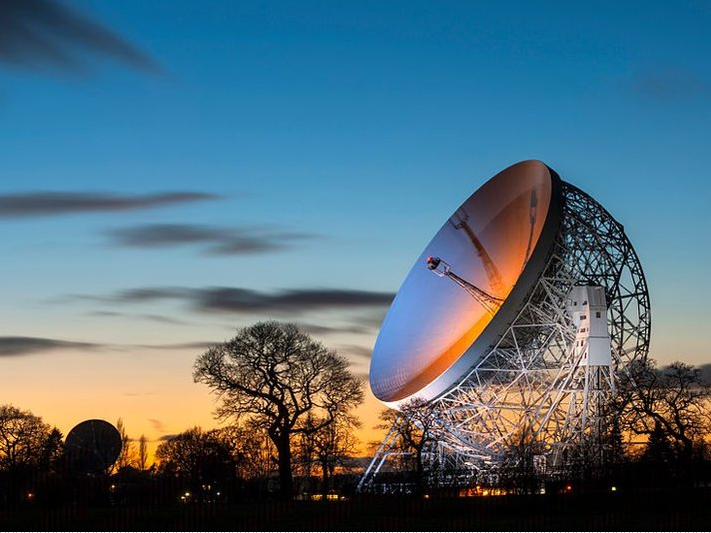Finding Signal In The Noise
How To Avoid The Noise Bottleneck
The Challenge Of Finding The Signal In The Noise
We are blessed and cursed to live in the digital age. We have access to more information than we can possibly handle yet we struggle to find the signal in the noise.
We are drowning in a tsunami of 24/7 news, a swamp of social media and cesspit of trivia and garbage.
Surface skimming
Like flat stones skimming the surface of a lake, we skim through endless articles and news reports and fill our heads with soundbites. But this is just superficial information and we delude ourselves, and try to delude others, that we know what we are talking about.
But as Shane Parrish puts it:
"...most people are operating on the same level of surface knowledge! So, in a twisted bout of game theory, we are rarely if ever called out on our bullshit (because people fear that we’ll call them out on theirs.)"
We entertain ourselves with social media and clickbait and see it as harmless fun, but it isn't because it fires up the pleasure receptors in our brain and make us temporarily feel good and it is addictive. The more we have of it the more we want.
Like junkies seeking their next fix, we gorge on information, blindly seeking substance beneath the froth and bubble.
Nassim Taleb frames this as striving for "more signal and less noise"
So how do we find the signal in the noise?
The noise bottleneck
In his book Antifragile Taleb makes the following observations:
- We believe that the more information we consume the more signal we receive, but in practical terms this is just not true, it is a cognitive illusion.
- As you consume more data, the ratio of noise to signal increases, the less you really know about what’s going on and the more likely you are to jump to the wrong conclusions and make the wrong decisions.
- "The more frequently you look at data, the more noise you are disproportionally likely to get (rather than the valuable part called the signal); hence the higher the noise to signal ratio."
- Taleb refers to this as "the noise bottleneck".
- Taleb suggests that our brains are not hardwired to extract the signal from the noise and to understand the key point.
- "... in a natural environment, a stressor is information. So too much information would be too much stress..."
- "...so we overreact emotionally to noise."
Nassim Taleb's conclusions
- Access to too much information increases intervention i.e. the "do something syndrome" - taking action makes us feel better because it makes us feel in control.
- Too much information causes us stress and we over-react, e.g. the panic-buying of various household items during the recent pandemic. Taleb notes how the media glorifies the anecdote.
- We need far less information and less frequently.
- We should ignore small changes in data measured over short periods of time and should only look at very large changes in data or conditions.
Know What To Ignore And Where To Focus Your Attention
Nassim Taleb offers a big picture perspective on finding the signal in the noise and one that resonates with me.
During the recent pandemic I found it very frustrating trying to get solid facts and reliable data and I came to the same conclusions as Taleb [although without his technical knowledge and expertise].
I learned to disregard the media and to seek out and focus on solid, evidence based, data provided by independent research organisations and the UK Government's Office of National Statistics.
But even with this data I found that it required a certain level of skill that, as a non-scientifically and statistically trained lay-person, I do not possess to attempt to interpret this data and come to sensible extrapolations and insights.
Fortunately, I found an excellent article by Shane Parrish in which he shared 7 tips on finding the signal in the noise from the late Richard Feynman:
[1] Do they really know what they are talking about?
Feynman suggests asking a series of direct questions, or watching a skillful interviewer asking, until the person doesn't know the answer. The honest person will admit that he/she does not know rather than trying to waffle and avoid a direct answer.
[2] Is it probably true vs. probably false?
This is about dealing with uncertainty, and here Feynman suggests testing the information with 2 different theories in a number of different scenarios to see which is stronger. The idea is to evaluate each theory in each scenario to find a balance of probability of it being true, until one theory emerges as "probably true".
[3] A prediction should get stronger with repeat testing.
As we investigate whether something is true or not, Feynman advises that new methods of experimentation and new evidence should show the predicted outcome as getting stronger and not weaker.
[4] Ask is it PROBABLE not is it POSSIBLE.
Feynman says that we have to ask the right question. So often we ask "Is this possible?" But Feynman says that we should ask: "Is this really the case? [Or "Is this how it is?"]
[5] You can only judge probability before it has happened.
Feynman is very clear that it is an error to base a conclusion on the probability of something based on what has already happened. You can only infer probability before it has happened.
[6] Anecdotes are not data.
Contrary to the way in which the media and popular opinion present inferences and "conclusions" based on anecdotes as certainties, Feynman is very clear that you need to use statistically sound sampling to arrive at 99% certainty, and this would require a sample size of 10,000 units or 10,000 attempts to replicate the prediction.
[7] The Rumsfeld factor
Feynman reminds us that many errors are caused because of missing information. I was never a fan of the politics of the late former US Secretary of Defense Donald Rumsfeld, but I always think he made a lot of sense when he said:
Further Reading:
- Iatrogenics - Do Something Syndrome
- Keeping Things Simple - The Art of Knowing What To Overlook
- Asking The Right Questions - How To Avoid Wonky Thinking
- Discernment - Exercising Good Judgement
Next Article: The Checklist Manifesto - Your Personal Safety Net
Return from "Finding Signal In The Noise to": Walking The Talk
Or to: Mental Models
LATEST ARTICLES
The Battle For Your Mind - How To Win Inner Freedom In A Digital Age Of Distraction
 From External Events to Inner Events. We often think of “events” as things that happen out there: the traffic jam, the rude comment, the delayed email reply. But what truly shapes our experience is wh…
From External Events to Inner Events. We often think of “events” as things that happen out there: the traffic jam, the rude comment, the delayed email reply. But what truly shapes our experience is wh…How to See Your Thoughts Without Becoming the Story
 A Practical Guide to Thought-Awareness. You can spend your life inside the stories of your mind without ever learning how to see your thoughts clearly and objectively. Most of the stuff we tell oursel…
A Practical Guide to Thought-Awareness. You can spend your life inside the stories of your mind without ever learning how to see your thoughts clearly and objectively. Most of the stuff we tell oursel…The Collison Decision Matrix - A Simple Framework for Better Choices
 The Collison Decision Matrix Is A Practical Everyday Thinking Tool. Most of us spend a surprising amount of time worrying about decisions. From small ones such as what to wear, what to eat, what to te…
The Collison Decision Matrix Is A Practical Everyday Thinking Tool. Most of us spend a surprising amount of time worrying about decisions. From small ones such as what to wear, what to eat, what to te…The Power Of Asking The Right Question
 The Power Of Asking The Right Question Lies In The Quest For Insight. To experience the power of asking the right question you must develop the practice of asking questions. The best way to improve th…
The Power Of Asking The Right Question Lies In The Quest For Insight. To experience the power of asking the right question you must develop the practice of asking questions. The best way to improve th…Site Pathways
 Here is a site pathway to help new readers of Zen-Tools navigate the material on this site. Each pathway is based around one of the many key themes covered on this site and contain a 150 word introduc…
Here is a site pathway to help new readers of Zen-Tools navigate the material on this site. Each pathway is based around one of the many key themes covered on this site and contain a 150 word introduc…How To Live With Contradiction - Beyond Thought Let Stillness Speak
 A major impact on so many peoples' lives is the situational contradiction of unfilled realistic expectations. So where does all this leave us? Well here we are, with mental equipment that is more lim…
A major impact on so many peoples' lives is the situational contradiction of unfilled realistic expectations. So where does all this leave us? Well here we are, with mental equipment that is more lim…How To Trust The Process Of Mindfulness - Right Now
 In mindfulness, the process isn’t some distant goal — it's what is happening right now. When we talk about how to trust the process of mindfulness the credibility of the process is heavily dependent…
In mindfulness, the process isn’t some distant goal — it's what is happening right now. When we talk about how to trust the process of mindfulness the credibility of the process is heavily dependent…Inner Mastery For Outer Impact - Mental Clarity For Effective Action
 Insights only matter if they translate into consistent action. In a world crowded with quick fixes and motivational soundbites, the theme “Inner Mastery for Outer Impact” calls us to something more e…
Insights only matter if they translate into consistent action. In a world crowded with quick fixes and motivational soundbites, the theme “Inner Mastery for Outer Impact” calls us to something more e…The Wise Advocate - Helping You Achieve The Very Best Outcome
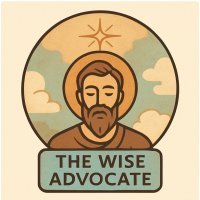 The focus of your attention in critical moments of choice either builds or restricts your capacity for achieving the best outcome. When we talk of 'The Wise Advocate' its easy to think of the consigl…
The focus of your attention in critical moments of choice either builds or restricts your capacity for achieving the best outcome. When we talk of 'The Wise Advocate' its easy to think of the consigl…Trust The Process - Beyond The Cliche
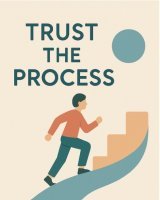 The phrase "trust the process" has become a cliche, the woo-woo mantra of the "self help" industry. Those three little words feel like they ought to mean something useful but hidden behind them are a…
The phrase "trust the process" has become a cliche, the woo-woo mantra of the "self help" industry. Those three little words feel like they ought to mean something useful but hidden behind them are a…The Dopamine Delusion - Why Anticipation Beats Achievement
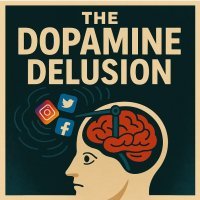 The thrill we feel is not in the having, but in the wanting. The more we have, the more we want. The more things we acquire and the easier things get for us, the more discontent we feel. The more spo…
The thrill we feel is not in the having, but in the wanting. The more we have, the more we want. The more things we acquire and the easier things get for us, the more discontent we feel. The more spo…The Power Of Silence Is Experienced In Your Use Of Language
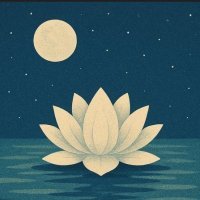 Practise the "Beneficial Neurological Delay" for optimal comprehension. The power of silence is experienced in your use of language, specifically: - How you formulate the words you use to think and in…
Practise the "Beneficial Neurological Delay" for optimal comprehension. The power of silence is experienced in your use of language, specifically: - How you formulate the words you use to think and in…
